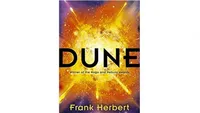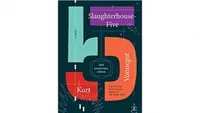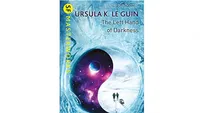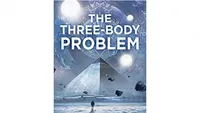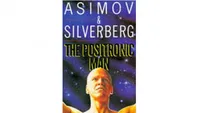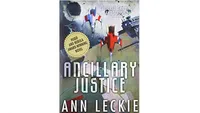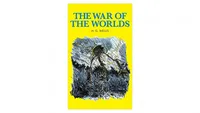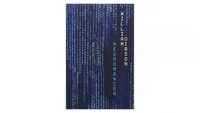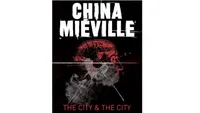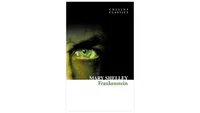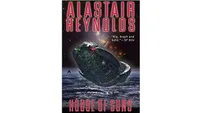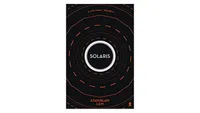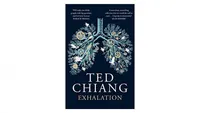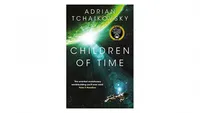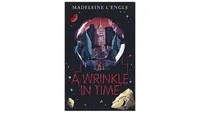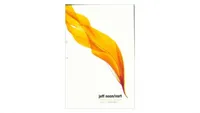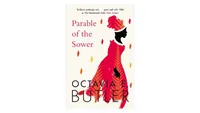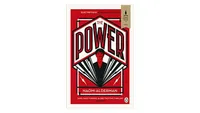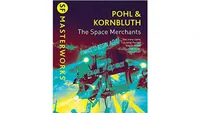The best sci-fi books of all time
Space, time travel or dystopia? Take your pick with the best sci-fi books.
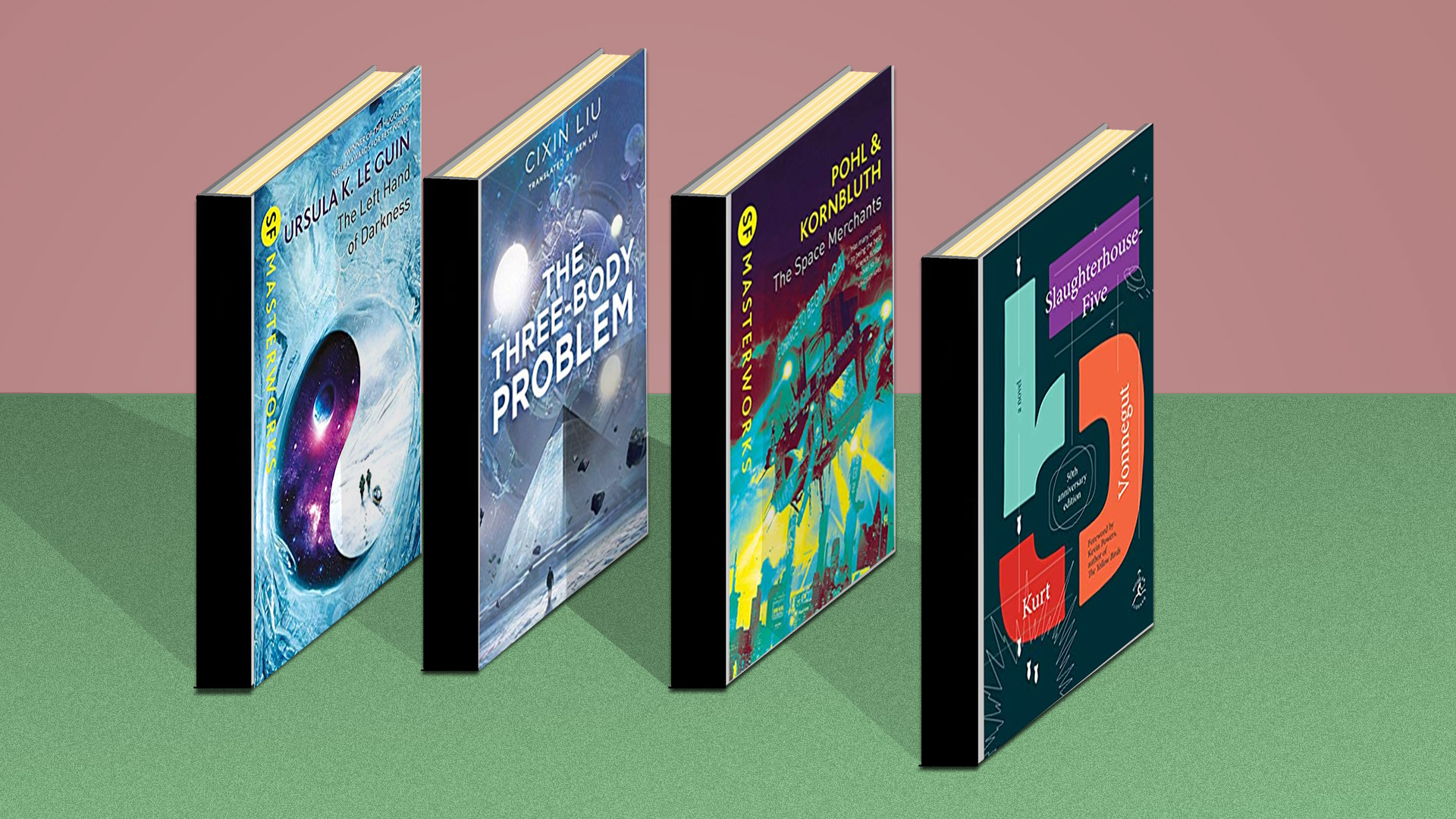
Get exclusive shortlists, celebrity interviews and the best deals on the products you care about, straight to your inbox.
You are now subscribed
Your newsletter sign-up was successful
The sci-fi genre has created some of the most engrossing books ever made. Through mind-altering prose and astonishing ideas that point to a future we mostly fear, those authors that live in this realm have taken many of us to new worlds with their tomes.
The term sci-fi can cover all manner of topics. This genre is all-encompassing, finding room for stories set in the distant future and those not set in any recognisable timeline whatsoever.
But the way the best sci-fi novels look at how we, or those like us, react to change is a common theme.
The definition of ‘science’ in this context can be relatively fluid, while its role within narratives can be dominant or just a conduit for explorations of the human condition.
Whether it’s dealing with fantastical discoveries or things a lot more tangible, the novels listed below are the sort of thing many a sci-fi fan will be intrigued by… if you haven’t read the books in question already.
Upvote your favourite and suggest more science fiction classics for this shortlist below.
UPDATED: While there are hundreds of books that could have made up our best sci-fi books list, we have kept it to a cool 20, mixing it up with stone-cold classics and some newer novels that have expanded the world of science fiction in print.
Get exclusive shortlists, celebrity interviews and the best deals on the products you care about, straight to your inbox.
Additional Contributor: Becca Caddy
Best sci-fi books
Dune might feel like an obvious selection but it’s a popular choice on many people’s lists of the top sci-fi novels for a reason. Think distant planets and distant future, two frequent staples of the genre, but with incredible amounts of detail.Many have tried to adapt it for the screen, and you’ll want to have a read (or a refresher) before Denis Villeneuve tries his hand at a cinematic version in 2020.Image Credit: Chilton Books
Keyes’s novel, originally published as a short story, concerns a series of scientific experiments conducted on low-IQ bakery worker Charlie Gordon to increase his intelligence.While some of the science is necessarily speculative, Keyes’s exploration of emotional manipulation – drawing on Plato’s cave allegory – forms the cornerstone of a surprisingly poignant novel. Even if you’re unfamiliar with the novel, you may well recognise its influence on a certain episode of The Simpsons.Image Credit: Harcourt, Brace & World
Vonnegut’s best-known work falls thematically under the science-fiction umbrella, while not being restricted by it. Slaughterhouse-Five follows Billy Pilgrim, a prisoner of war during World War II.The novel relies heavily on time travel between stages in Pilgrim’s life. It has been hugely influential on a great number of writers, both in Vonnegut’s own era and in the years since, while his other works Cat’s Cradle and Breakfast of Champions are both worth a read if this is up your street.
Image Credit: Vintage Classics
Le Guin has long been a must-read on anyone’s list of sci-fi authors, and The Left Hand of Darkness is many people’s go-to. It addresses themes of sex and gender in a world of ‘ambisexual’ characters, allowing readers to draw their conclusions about the real world from which the author herself found her ideas.If you’re a fan, Le Guin has an extensive body of work from which you can draw for further reading.
Image Credit: Gollancz
Translated from the original Chinese in 2014, this 2008 novel takes the backdrop of China’s Cultural Revolution and uses it to develop a layered plot covering death, aliens and scientific certainties and uncertainties.A winner of the Hugo Award in 2015, Liu Cixin’s ambitious work can count Barack Obama among its fans, with the former president praising its scope and the way it made his own problems feel tiny by comparison.Image Credit: Chongqing Press
Asimov might be best known for I, Robot, but The Positronic Man – which also incorporates the author’s laws of robotics - is equally deserving of your time.The work, which expands on Asimov’s shorter work The Bicentennial Man, addresses themes of robots and the sentience of AI, and looks at events from the perspective of a robot named Andrew. Elements of the story form the basis of the Robin Williams film Bicentennial Man.Image Credit: Gollancz
The first instalment in Leckie’s Imperial Radch trilogy, Ancillary Justice is one of the more eye-catching addition to the upper echelon of sci-fi writing in the recent past. The novel takes the form of a space opera set on a distant planet, but addresses that most universal of themes, revenge. Considering the praise for its style and ambition, you often have to remind yourself that this was a debut novel.Image Credit: Orbit
Orson Welles infamously directed and starred in a 1938 dramatisation of War of the Worlds for radio, which allegedly caused mass panic among listeners who didn’t know the story was fictional.Image Credit: Collins
The novel was a huge success, winning the Nebula Award, the Philip K. Dick Award, and the Hugo Award when it was released. Now, nearly 40 years later, it’s still considered one of the best sci-fi novels. If you enjoy it, try more of Gibson’s work. Neuromancer is Gibson’s debut novel and the first book in the Sprawl trilogy.Image Credit: Harper Voyager
Whether or not you’ve seen the TV adaptation of Miéville’s work, you’ll want to give The City and the City a read to enjoy the writing and the ambition.It concerns two cities that occupy the same space, and their citizens, all of whom are taught to ‘unsee’ the other city and everything that happens there. The City and the City addresses the scientific concept of more than one thing occupying the same space and the more sociological theme of wilful ignorance of the things around us.Image Credit: Picador
In 1816, Mary Shelley, Percy B Shelley and Lord Byron allegedly had a competition to see who could write the best horror story, which is how Shelley wrote Frankenstein, inspired by her travels around Europe. Her story has since hugely influenced popular culture and many stories that have followed.Image Credit: William Collins
Welsh author Reynolds might be most widely known for his various trilogies, but standalone novel House of Suns more than holds its own in that company.It is in outer space, millions of years into the future, and follows de facto clones of a 31st century woman named Abigail Gentian. The novel brings together a wealth of disparate themes while allowing the author to show the wherewithal to bring the moving parts together when it matters.Image Credit: Gollancz
The book has been adapted several times for radio, theatre and movies. Andrei Tarkovsky's 1972 adaptation is considered one of the best sci-fi movies of all time, and Steven Soderbergh's 2002 version is a great watch too – although Lem allegedly didn't think either nailed some of the book's central themes.Image Credit: Faber & Faber
If you enjoy Exhalation, you should also read Chiang’s first collection of short stories, Stories of Your Life and Others. The story this collection is named after is the one the movie Arrival is based on.Image Credit: Picador
If you enjoy Children of Time, Tchaikovsky has penned two follow-up novels in the series, Children of Ruin and Children of Memory. A potential film adaptation is also in the works, which would be challenging but wonderful to see interpreted on the big screen.Image Credit: Pan
A Wrinkle in Time is an enchanting story that’s become a must-read for kids interested in sci-fi and fantasy. After you’ve read the book, watch the movie. In 2018 it was adapted into a film starring Oprah Winfrey, Reese Witherspoon and Chris Pine.Image Credit: Puffin
Vurt’s story has been compared to the Greek myth of Orpheus, who ventured to the underworld to save his wife, Eurydice. Like many other books on this list, Vurt won the Arthur C. Clarke Award when it was released back in 1994.Image Credit: Pan
Written by award-winning writer Octavia E. Butler in 1993, this story is set in a post-apocalyptic future in which a young woman called Lauren can feel the pain that other people are experiencing. She has to leave her home and journey across the country while secretly developing a new belief system called Earthseed.Parable of the Sower has won many awards over the years and is also commended for touching on climate change and social justice topics. It’s been adapted into a concert and a comic book, but we have our fingers crossed that one day it’ll be a movie, too.Image Credit: Headline
Not only is the story fresh and fascinating, but the novel is brilliantly written by Alderman, weaving together four different points of view to explore how women assert their new dominance all over the world.Image Credit: Penguin
When it comes to predicting the future through science-fiction, The Space Merchants does better than plenty of its predecessors or successors.Published in 1953, the novel conceives of a time in the future during which businesses and the world of advertising have wrested power from traditional governmental sources. It received high praise from Kingsley Amis, who described it as having “many claims to being the best science-fiction novel so far,” and some of its accuracy is almost concerning.
Image Credit: Gateway
- These are the best dystopian novels we've read
SOMETHING MISSING FROM OUR SHORTLIST?
Tell us about it, and if enough people agree we'll add it in.
